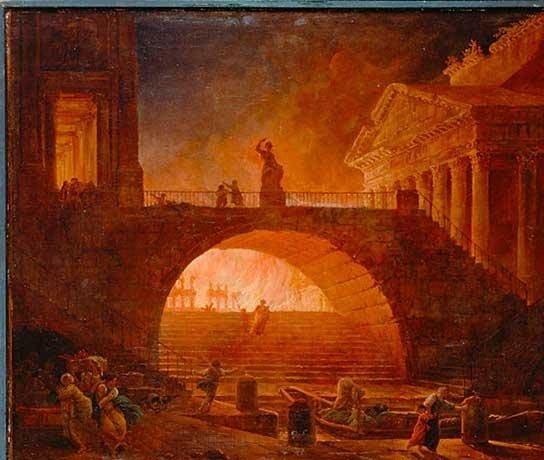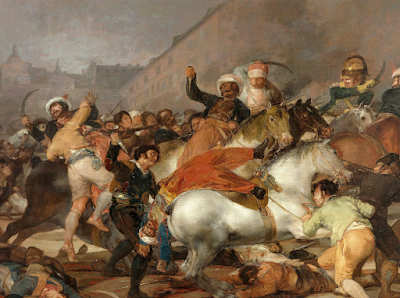The core dynamic is ultimately the loss of social cohesion within the ruling elites and in the social order at large.
There’s a definite end of days feeling to the euphoria that the world didn’t end on November 3. And what better way to celebrate the victory of what passes for normalcy with a manic stock market rally?
It’s as if everyone knows there is no returning to the good old days of a well-oiled Imperial machine chewing through any and all obstacles, and this realization is so frightening that the need to pretend everything is fine, just fine, overwhelms the last remaining ties to reality.
 And since there’s a brief intermission between gladiator battles while the Coliseum attendants remove the fallen heroes from the last entertainment, let’s play the historical analogy game: which collapse will America track most closely? Rome circa 475 AD, the USSR circa 1989, or Revolutionary France circa 1789?
And since there’s a brief intermission between gladiator battles while the Coliseum attendants remove the fallen heroes from the last entertainment, let’s play the historical analogy game: which collapse will America track most closely? Rome circa 475 AD, the USSR circa 1989, or Revolutionary France circa 1789?
I’m tempted to include China’s Song Dynasty circa 1276 AD, but the analog of the Mongol invasion isn’t a likely fit. The Khmer Empire circa 1350-1430 AD and the Mayan Civilization in the 9th century might be excellent analogies but not enough is known about these complex declines to make an analogy more than guesswork.
Rome, the USSR and Revolutionary France are all compelling analogies due to the hubristic cluelessness of their fractured elites as the pretensions of stability collapsed around them. Even though Nero didn’t actually fiddle while Rome burned and Marie Antoinette didn’t gush “Let them eat brioche” when notified that the peasants had no bread (or more accurately, could no longer afford it), these myths are handy encapsulations of the disconnect from reality that infested the elites in the last years before the deluge of non-linear chaos overwhelmed the regimes.
While historians gather evidence of tipping points such as pandemics, ecological damage, invasions, droughts, inflation, etc., the core dynamic is ultimately the loss of social cohesion within the ruling elites and in the social order at large.
As a generality, the permanence of the status quo is taken for granted by elites, who then feel free to squabble amongst themselves over the spoils of wealth and power. Distracted by their own infighting, the elites are blind to the erosion of the foundations of their power.
As coherence in the elites unravels, the ties uniting the elites with the masses unravel as well.
One camp within the elites recognizes the danger and seeks reforms, but the reforms are too little, too late, and in any event, the elites who cling most ardently to the past stability fight the reform movement to a standstill.
As social cohesion unravels, systems that once seemed immutable (i.e. linear) suddenly display non-linear dynamics in which modest changes that would have made little difference in the past now unleash regime-shattering disorder.
So take your pick, America: what’s the closest analogy? A sclerotic Politburo of elders living in the past, an elite fiddling while the nation disintegrates, or an elite so out of touch with reality that it claims inflation is zero while the populace can no longer afford bread?
They all lead to the same destination:
Full story here Are you the author? Previous post See more for Next post
Tags: Featured,newsletter


















